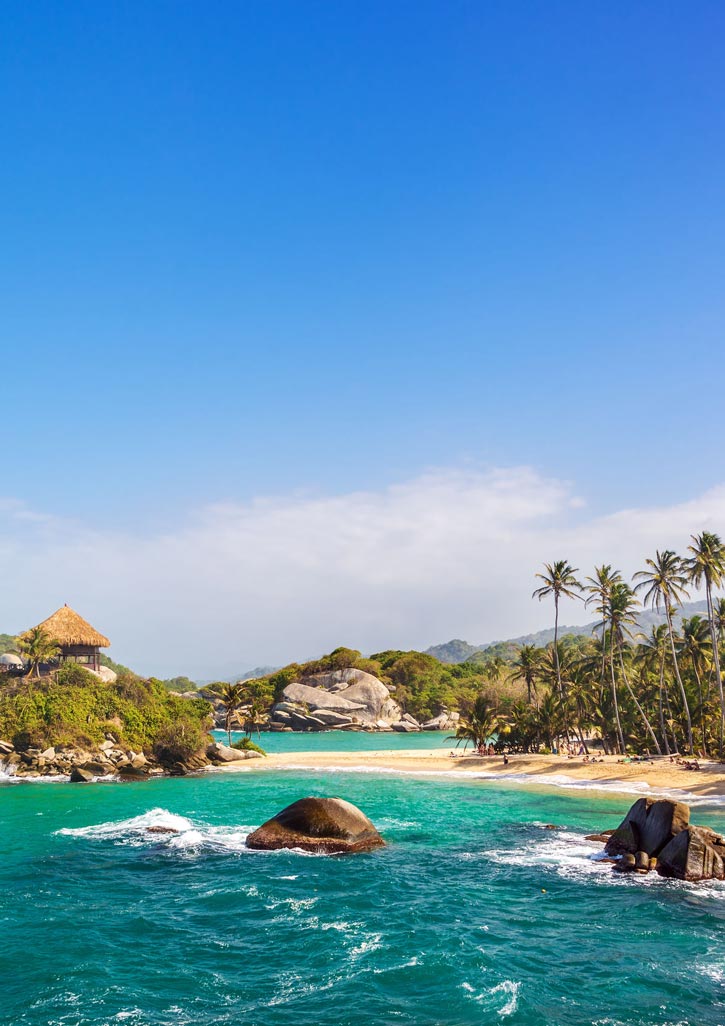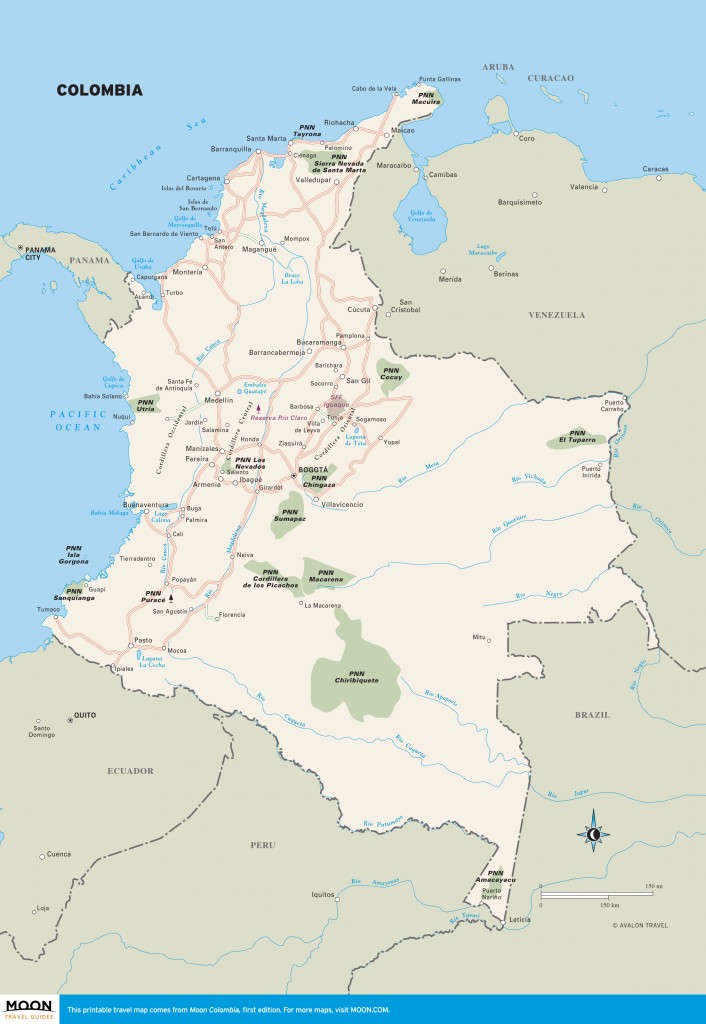
Parque Nacional Natural Tayrona in Colombia. Photo © Jesse Kraft/123rf.
Rangers face a great challenge in protecting the parks against threats related to human encroachment, particularly cattle ranching and the planting of illicit crops.In 1960, PNN Cueva de los Guácharos, in the southwest, was the first park to be established. The number of parks steadily increased, especially from 1986 to 1990 when President Virgilio Barco doubled the extension of parks from roughly 5 million hectares to 10 million hectares. In the past few years, the government has again been increasing the number and extension of parks. In 2013 President Juan Manuel Santos doubled the size of the PNN Serranía de Chiribiquete to its present 2.8 million hectares, or three times the size of Yellowstone National Park.Charged with the considerable task of administering this huge system are a mere 430 rangers: roughly one person for every 33,000 hectares. Rangers face a great challenge in protecting the parks against threats related to human encroachment, particularly cattle ranching and the planting of illicit crops. There are other threats as well, such as illegal mining and logging. Paradoxically, what has preserved many of the parks until now has been the lack of security due to Colombia’s internal conflict. As security conditions improve, there will be increasing pressure on these natural habitats. The Parks Service is actively engaging with the communities that live near the parks and is transferring the operation of much of the ecotourism infrastructure to community-based organizations as part of an effort to enlist local communities in the preservation of the land.
Entry permits and entry fees are only required in a handful of highly visited parks, such as PNN Tayrona, PNN Gorgona, PNN Cocuy, and PNN Los Nevados. At these, you will automatically be charged if you book lodging in advance, or if not, upon arrival. If you want to be meticulous, you can obtain the entry permit and pay entry fees in advance by contacting the Parques Nacionales (tel. 1/353-2400) in Bogotá.

Colombia
Excerpted from the First Edition of Moon Colombia.